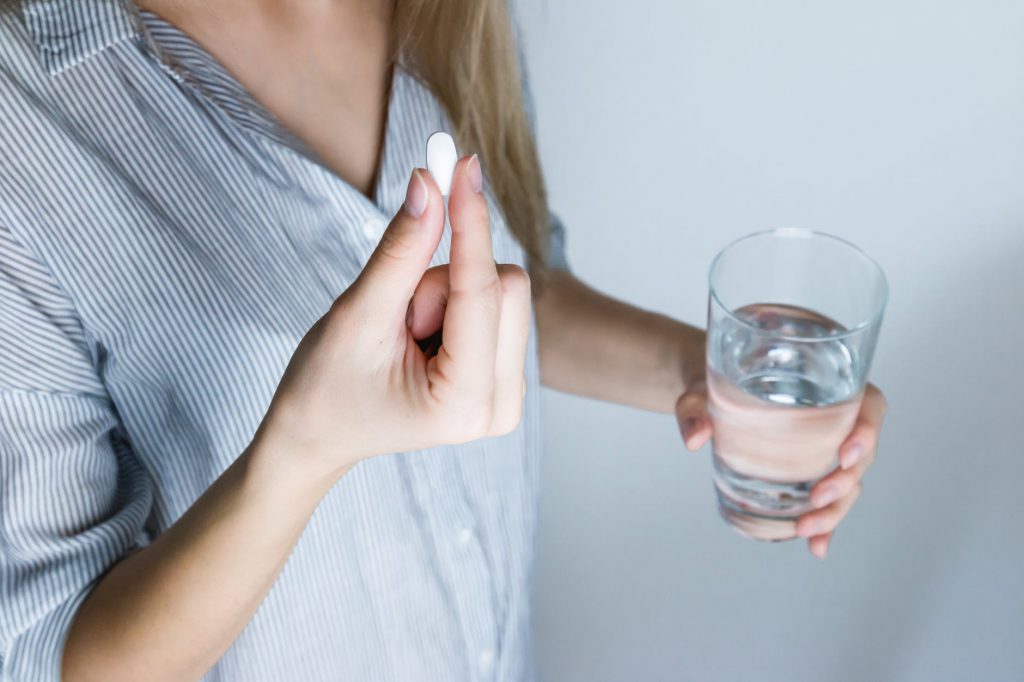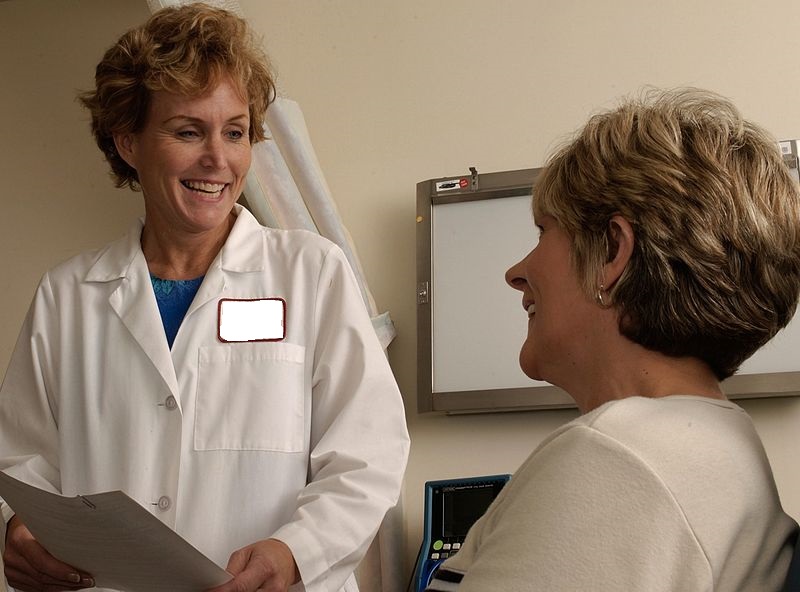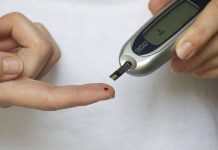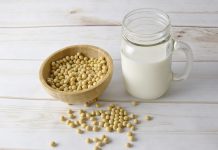“while menopause itching can seem like a less worrisome side effect than some perimenopause symptoms, it is certainly one of the more unpleasant ones.”
Menopause itching is a common complaint among women going through the perimenopause process.
This unpleasant side effect of fluctuating hormone levels can arise in different areas of the body, including the face, body and vaginal area.
But while menopause itching can seem like a less worrisome side effect than some perimenopause symptoms, it is certainly one of the more unpleasant ones!
In this article, learn what causes menopause itching and natural remedies to ease your discomfort.
What Causes Vaginal Itching During Menopause?

Estrogen is the primary reproductive hormone in the female body. Throughout the reproductive years, estrogen levels fluctuate in a predictable pattern to trigger ovulation and menstruation.
But during perimenopause, the body’s reproductive function begins to shut down. Estrogen levels fluctuate and eventually decline as perimenopause continues.
“With declining estrogen levels, you also have thinner, drier skin – and dry skin often itches!”
Unfortunately, your body relies on estrogen for more than just regulating the monthly menses. Estrogen also triggers the production of collagen and natural skin oils to keep your skin hydrated and glowing.
With declining estrogen levels, you also have thinner, drier skin – and dry skin often itches!
The Natural Remedies to Ease Vaginal Itching
These natural remedies all come highly recommended as medication-free ways to ease vaginal itching during perimenopause.
1. Try sea buckthorn oil.
In one research study, participants who took 3g of sea buckthorn oil daily for three months reported improvements in vaginal itching and atrophy symptoms.
2. Use only pH-balanced personal care products.
Avoid scented personal care products, which are often full of chemical “fragrances” that can be very irritating to the delicate tissues of the vaginal area.
In particular, avoid the use of douches. Try to use only pH-balanced, unscented products.
3. Apply wild yam cream.
Wild yams are said to contain a natural source of estrogen. Healthline reports that wild yam cream is often recommended to ease vaginal dryness and itching.
4. Add more soy to your diet.
Soybeans and products made from soybeans contain an estrogen-similar compound called “isoflavones.” Research is ongoing to try to determine how and how well isoflavones can work to ease vaginal dryness and itching.
5. Try kudzu supplements.

In one research study reported by Very Well Health, women who took the herb kudzu as a supplement for 24 weeks experienced relief from vaginal dryness that can cause itching.
6. Supplement with black cohosh.
Black cohosh is another herb that naturopathic doctors sometimes prescribe for relief from vaginal itching due to declines in estrogen production.
In addition to easing symptoms of dry skin and itching, black cohosh can help with irregular sleep known to occur during perimenopause.
7. Add oily fish or fish oil supplements to your daily diet.
Omega-3 essential fatty acids add back moisture and natural oils to your skin and tissues.
Whether you choose to eat fatty fish like salmon or take fish oil capsules, you will likely receive lots of additional perimenopausal benefits even in addition to relief from itching and dryness.
8. Encourage your skin to lubricate naturally.
It is no secret that stimulation draws blood flow to the area.
Here, using a self-stimulator or vibrator can tell your body that blood flow and circulation is needed in that area to reduce dryness and itching.
“Talk with your doctor about additional options if everything you’ve tried to remedy vaginal itching still hasn’t provided adequate relief.”
We hope you will find relief by trying some of these natural remedies to ease vaginal itching and dryness during menopause.
However, if you try out these natural remedies for vaginal dryness and you are still experiencing uncomfortable itching, it is important to reach out to your doctor for additional help.
In addition to simple skin drying and thinning, perimenopause can trigger other, less common skin sensations.
These may include paresthesia (tingling, prickling or even skin numbness) or formication (patients describe this like insects crawling beneath the skin). Vaginal atrophy is a more severe form of vaginal pruritus (skin itching) that can also occur.

Talk with your doctor about additional options if everything you’ve tried to remedy vaginal itching still hasn’t provided adequate relief.
If you want to try any of the herbal supplements and remedies listed here and you are taking any required medications for management of a chronic health condition, always talk with your provider first to be sure there are no interactions.
Sources & References:
https://www.medicalnewstoday.com/articles/322587.php
https://www.sciencedirect.com/science/article/pii/S0378512214002394
https://www.healthline.com/health/womens-health/vaginal-atrophy-natural-treatments#natural-remedies
https://www.healthline.com/health/vaginal-dryness-alternative-treatments#alternatives
https://www.verywellhealth.com/natural-remedies-for-vaginal-dryness-90070
https://www.aarp.org/health/conditions-treatments/info-2018/menopause-natural-remedies-symptoms.html
https://www.ncbi.nlm.nih.gov/pmc/articles/PMC6073395/
https://www.aarp.org/health/conditions-treatments/info-2018/menopause-natural-remedies-symptoms.html
https://www.mayoclinic.org/diseases-conditions/vaginal-atrophy/symptoms-causes/syc-20352288





















